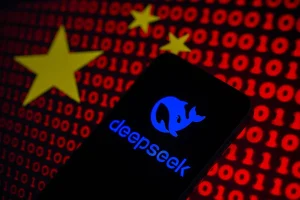AI Friends, deepfake foes, and which Tiger Global partner is leaving now

AI technology continues to evolve, bringing both exciting innovations and critical challenges. The latest updates reveal significant strides in AI companions and new investment opportunities.
On the flip side, deepfake technology and ethical concerns in AI advancements require careful consideration. Meanwhile, the venture capital world is also seeing notable changes.
AI Companions in Wearable Tech
AI hardware is evolving, and Friend’s $99 necklace is the latest addition. This AI-enabled pendant is designed to be an AI friend, targeting users who struggle with loneliness. However, competition like Humane’s Ai Pin and Rabbit’s r1 fell short. Even OpenAI’s anticipated assistant has only reached a small ‘alpha group’ of users so far.
Despite the competition, Heeyo’s AI buddy for kids stands out. Its chatbot and learning platform offer a user-friendly design, making it appealing for younger audiences. The launch of Heeyo was covered by Rebecca Bellan, emphasizing the product’s unique approach to engaging children with technology.
The Dark Side of AI: Deepfakes and Hallucinations
On the flip side of AI advancements, deepfakes and hallucinations pose growing concerns. Recently, Meta’s AI assistant suffered from a hallucination, denying an assassination attempt on a public figure. This incident highlights the potential dangers of AI misinformation, especially during sensitive times like election years.
Devin Coldewey discussed whether AI companies should restrict user queries about sensitive topics to prevent such issues. He agreed that while it’s necessary, implementing this solution isn’t straightforward. The challenge lies in developing more robust systems to accurately handle complex queries without compromising on information integrity.
FranShares: Diversifying Investments
FranShares, a Chicago-based startup, is changing the investment game. The platform allows users to invest in franchise businesses with as little as $500. This low-entry barrier is attracting many Gen Z and Millennials seeking passive income and portfolio diversification.
Having raised a $4.2 million seed round led by Chicago Ventures, FranShares demonstrates significant growth potential. Kirsten Korosec from the podcast highlighted this innovative approach, and Rebecca Bellan, a Millennial, gave insights into the appeal of investing in franchises for younger generations.
Kennet’s Unique Investment Strategy
Kennet, a London-based growth equity investor, recently raised $287 million for its largest growth fund. This 25-year-old firm focuses on B2B SaaS companies that are founder-owned and bootstrapped. Such companies are often more capital-efficient, aligning with Kennet’s investment philosophy.
Kennet’s strategy emphasizes identifying businesses with strong growth potential. By targeting B2B SaaS companies, Kennet looks for firms with a proven business model and sustainable revenue streams. This method of investment not only supports growth but also encourages efficient use of capital.
Shake-ups in Venture Capital
The venture capital world is seeing significant changes. Alex Cook, a former partner at Tiger Global, is leaving after seven years. Cook played a crucial role in some of the firm’s largest fintech investments, particularly in India.
Cook’s departure follows a trend of notable VC exits before funds close. This shift reflects growing uncertainties in the investment landscape. The possible reasons range from searching for new opportunities to changing market dynamics. This ongoing shuffle in the VC sector suggests a period of transition and adaptation.
Ethics in AI: A Continuous Debate
The ethical implications of AI remain a hot topic. The discussion around AI ethics often revolves around the balance between innovation and safety. AI’s capability to create realistic deepfakes and hallucinations poses risks that could undermine public trust.
Rebecca Bellan and her co-hosts debated if more stringent measures could curb these risks. The consensus leaned towards a cautious approach, ensuring AI advancements do not come at the expense of ethical standards. This ongoing conversation is vital for shaping the responsible development of AI technologies.
Conclusion
The advancements and challenges in AI and venture capital echo the dynamic nature of technology and investments. Innovations like AI friends and FranShares’ model promise new opportunities, while deepfakes and VC shake-ups remind us of the complexities involved.
As the industry evolves, keeping an eye on ethical practices and adaptive strategies will be crucial for sustainable growth. The interplay between technological innovation and responsible stewardship remains at the forefront of these discussions.
The advancements and challenges in AI and venture capital echo the dynamic nature of technology and investments. Innovations like AI friends and FranShares’ model promise new opportunities, while deepfakes and VC shake-ups remind us of the complexities involved.
As the industry evolves, keeping an eye on ethical practices and adaptive strategies will be crucial for sustainable growth. The interplay between technological innovation and responsible stewardship remains at the forefront of these discussions.





